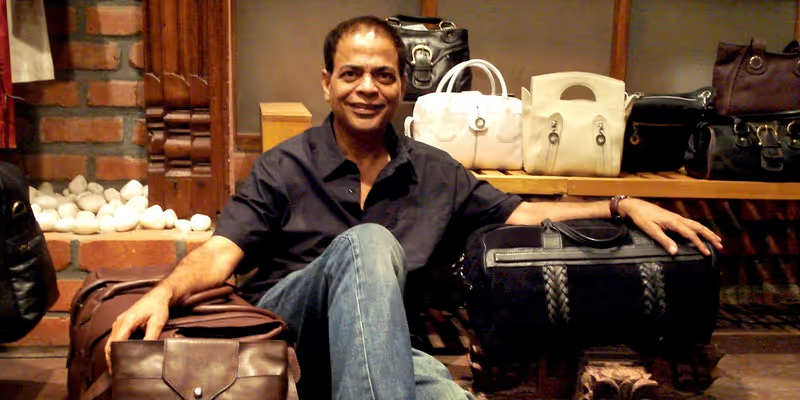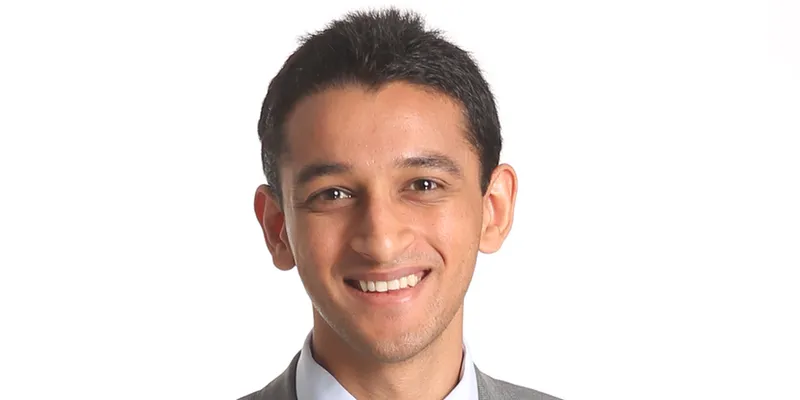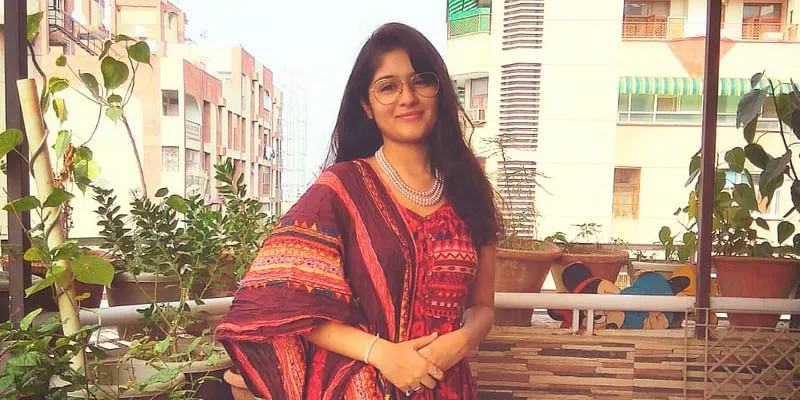From stitching in Dharavi, selling on streets, to getting funded by boss: 5 inspiring stories of Indian bag brands
The Indian bags market is expected to grow annually at a CAGR of 7.5 percent between 2021 and 2025. Here are the stories of five Indian bag brands that have overcome challenges and made a name for themselves in the segment.
Traditionally, India’s market for bags and luggage has been dominated by unorganised players that comprise local bag shops and dealers.
In the last few years, the situation has been marginally changing, with more established and organised brands capturing a larger piece of the market.
This increase is largely due to rising travelling-based expenditure, the growing popularity of ecommerce portals, entry of international brands, and stabilisation of GST on bags at 18 percent.
According to Statista, the bags and luggage segment is expected to see annual revenue of over $10 million in 2020-21. Further, the market is expected to grow annually at a CAGR of 7.5 percent between 2021 and 2025, with many Indian bag brands coming to the fore.
Here are the stories of five Indian bag brands that know adversity and have made a name for themselves in the segment.

MI Siddiqui, Founder, COSMUS
Bihar native MI Siddiqui extending his visit to Mumbai to start a bag manufacturing business from its famed slums Dharavi was a turning point in his life. In 2003, he borrowed Rs 5,000 from friends, found a place in Dharavi, and with four stitching machines launched his bag manufacturing company – COSMOS Bags.
Today it is known as COSMUS — a company with a Rs 35 crore turnover. For many years, COSMUS operated as a B2B model, supplying bags to companies such as Hutch and Vodafone, before venturing into retail and ecommerce.
At present, COSMUS’ business has three divisions: corporate, retail, and ecommerce. The company listed on the ecommerce platform Snapdeal in 2012. Its products are available on Amazon, Flipkart, Paytm, and Myntra, besides multiple physical outlets, where it has tie-ups with distributors.
From four machines, COSMUS has ramped up to 95 in Dharavi. The company produces around 40,000 bags a month in categories, including duffel bags, laptop bags, and school bags. It has a total of 400 stock-keeping units.

Hidesign founder Dilip Kapur
In 1978, Dilip Kapur gathered Rs 25,000, hired one cobbler, and started a two-person artisan workshop in Puducherry named Hidesign.
He ran the business in a small capacity, but his wakeup call came in the form of a German tourist who visited Puducherry. The tourist, impressed by Dilip’s work, said he wanted 1,400 bags. Dilip’s eyes nearly popped out, but he agreed to accept the huge order.
With just one cobbler and a single sewing machine, Dilip worked tirelessly to make 200 bags in just six months.
“That was a huge challenge, and I had almost given it all up. But many others who visited Auroville showed interest in my leather bags and took them abroad, hence popularising the Hidesign brand. This turned my passion into a full-fledged brand,” he says.
Over the years, Hidesign has evolved from a small, leather goods maker into a lifestyle brand with a presence in exclusive stores, airport stores, shop-in-shops, multi-brand outlets, and ecommerce platforms. It clocked around Rs 170 crore gross annual revenue last year and has 1,400 employees.

Yashas Alur, Founder, Everpret
Before becoming an entrepreneur, Yashas Alur worked at Bengaluru-based Dentsu Webchutney. Over there, he noticed several women employees carrying more than one bag. This made him wonder whether a handbag could be redesigned to fit all the essentials, such as a laptop, smartphone, wallet, bottle, keys, makeup set, etc.
If a handbag could fit all these things, there would be no need to carry multiple bags to work. After talking to a Delhi manufacturer, who imported vegan leather from China, Yashas came up with two designs for work handbags.
He raised funding for his idea from an unlikely source — his boss at Dentsu Webchutney, who invested Rs 8 lakh in Yashas’ venture. He quit his job in November 2017 and formally launched Everpret in January 2018.
Through the Everpret website, Yashas started selling his designer handbags to working women in metro cities. The company recorded a turnover of Rs 3.5 crore last year.
Most of the Everpret sales come from Delhi, Mumbai, Bengaluru, and Chennai, and the company is setting up kiosks in IT parks to boost brand visibility.

Aarushi, Founder & Director, Lavish
Lavish, a brand that sells handmade apparel and accessories, was established in 2017 in Dwarka, Delhi. Started by Aarushi with Rs 30,000 from her savings, the firm now clocks a turnover of more than Rs 20 lakh annually.
Lavish is a Made-in-India brand that sells handmade things, including handbags, accessories, and clothes.
“Initially, I was selling only ethnic apparel, but gradually expanded to selling bags, accessories, and much more. Some of them are made by artisans spread across Meerut, Agra, and other places in Uttar Pradesh. I have employed around 30 artisans, who work for me on a daily-wage basis,” she says.
Lavish sources 100 kg of denim from Jaipur, and then washes and refines the fabric at its in-house facility. It sources its other raw materials from different parts of the country, mainly Old Delhi and Gujarat.
The brand is present on ecommerce platforms like IndiaMart, social media platforms like Facebook and Instagram, and on the Federation of Indian Export Organisations (FIEO), Enterprise Europe Network, and a US-based export portal.
High Spirit

Tushar Jain, Co-founder, High Spirit
Forced to sell bags on Mumbai streets after his father lost everything in a stockbroking scam, Tushar Jain didn't lose hope. Tushar and his father completely transformed their small bag company into a large seller of school bags, college bags, duffle bags, business and laptop cases, and more.
Under Tushar’s leadership, the business was named High Spirit Commercial Ventures in 2012. The bootstrapped company experienced a meteoric rise in popularity and became India’s fourth-largest maker and seller of backpacks and luggage.
"We have emerged as the largest brand in the Indian backpack segment by selling seven million bags in 2018," says Tushar.
That year, the company recorded a Rs 250 crore turnover. The business has its headquarters in Mumbai and several regional offices spread across India.
“We bootstrapped the company by starting with a small investment. Our finances then grew substantially over the years with the help of internal accruals and working capital from banks,” he adds.
Edited by Suman Singh







